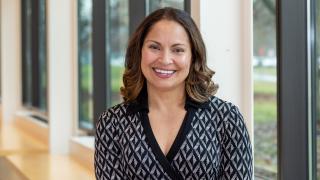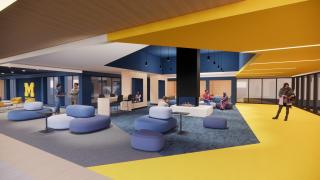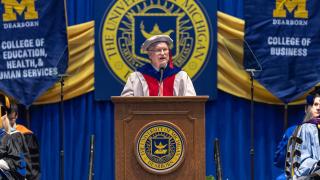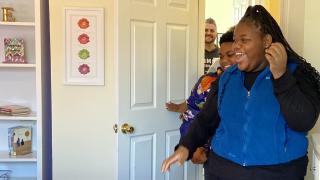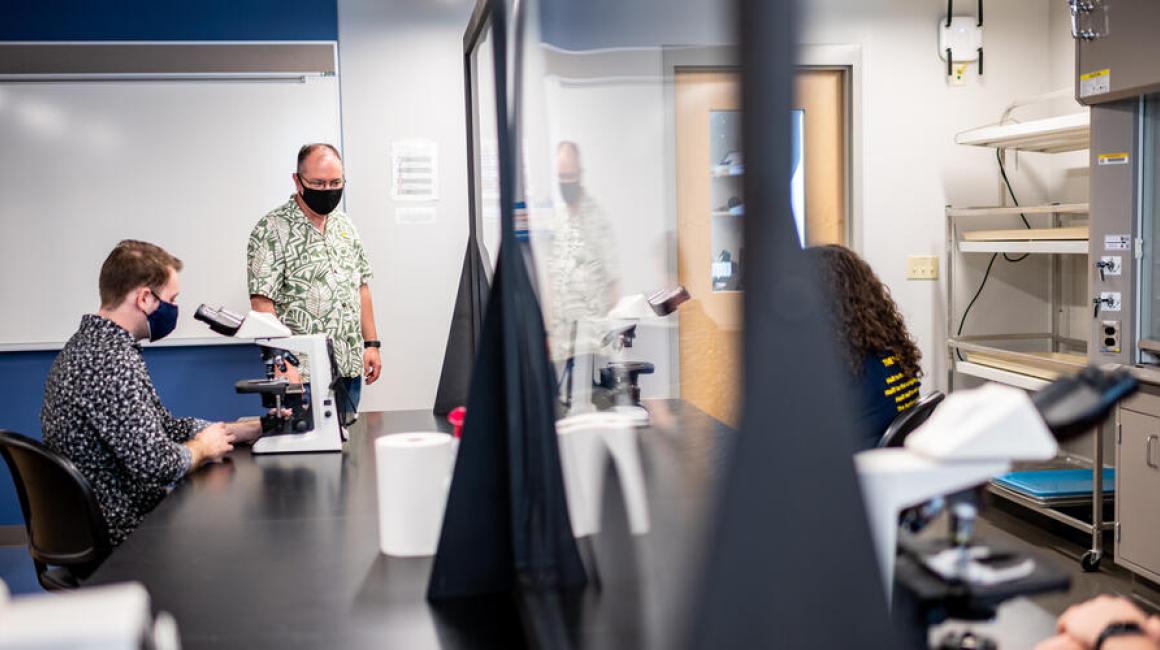
With the arrival of the Omicron variant, winter 2022 is starting to feel a lot like winter 2021. Case rates are at the highest point of the pandemic. Masks are again part of our daily lives and many of us are even upping our masking game. And we’re again confused about what kinds of activities can be done safely and which are best to forgo until the surge subsides. To help get some clarity on the winter COVID situation — including what it means for life at UM-Dearborn — university leaders recently hosted a town hall with special guest Dr. Preeti Malani, U-M’s chief health officer. We’ve summarized some of the takeaways below, or you can watch the full one-hour event on the university YouTube channel.
Winter 2022 is not winter 2021
While some COVID déjà vu is understandable, there are some significant differences between winter ‘21 and winter ‘22. A year ago, vaccines were just becoming available to very limited groups; today we have a student vaccination rate of 84 percent (88 percent for Winter 2022 students with an in-person or hybrid class), and 95 percent for both faculty and staff. We know that with a booster, which the university is now requiring under its vaccination policy, we’re still well protected against serious disease. We have an on-campus clinic where students, faculty and staff can get a free COVID test or booster. We have the more effective KN95 and surgical masks available for easy pickup at multiple sites on campus. And we have a campus community that’s still doing a great job masking up, social distancing, and embracing an ethic that we’re all in this together. In other words, we have some really powerful — and according to the public health experts, adequate — tools for controlling viral spread and limiting serious illness. For these reasons, university leaders made the decision to continue with their plan for in-person learning this semester. “At the most, we have 1,250 students on campus at any one time, we have great ventilation systems, everyone is wearing a mask, we’re requiring boosters, so we are in a very safe cocoon on this campus,” Chancellor Domenico Grasso said at the town hall. Of course, university leaders are intensely monitoring the situation and have contingency plans in place should conditions change. But with low cases among students, so far, so good.
How Omicron is — and isn’t — changing things
Every stage of the pandemic teaches us new things about the virus and how we can respond. This summer and fall, during the Delta surge, so-called breakthrough cases among fully vaccinated people made up a relatively small share of cases, which gave fully vaccinated folks a path for returning to relative normalcy. Once booster shots became available, the outlook looked even better. But Omicron has abruptly changed the calculus in some ways. “What we’re learning is that getting infected or even vaccinated does not guarantee long-term immunity,” Dr. Malani said. “With Omicron, in particular, the vaccines are not 100 percent protective, but boosters do help that protection.” With this realization comes a shift from thinking about vaccines as protection against infection to protection against serious disease. “This vaccine was so incredibly effective that, in a way, we were spoiled,” Malani said. “But if you think about the flu vaccine, it makes the disease less severe. So you don’t prevent every infection, you prevent illness. So if I [am vaccinated and] get COVID, I’m not going to die of COVID. I might be inconvenienced for a few days. I think this is where we’re headed when we talk about endemicity. We’re not going to have life without COVID. But vaccination remains essential to making this a mild disease.”
Masking
Because the vaccines aren’t as protective against an Omicron infection, Dr. Malani says masking is again becoming a crucial part of keeping everyone safe. Here at UM-Dearborn, we require masking indoors, with a few exceptions, like when you’re eating or alone in an enclosed private office. And Malani says masking is still really important for protecting folks in your life who can’t get the vaccine yet, like children under five. It’s also probably a good idea to start wearing a better mask. Malani says cloth masks still offer some protection, but if you’re going to be spending prolonged periods of time indoors, you’re going to want to reach for a surgical mask, KN95 or N95. The Omicron variant is simply much more contagious, and both surgical and KN95/N95 masks carry an electrostatic charge that helps them filter out tiny particles. You can grab surgical masks for free in all of the deans offices, at the University Center information desk, the testing and vaccination clinic, the ELB advising office, the Facilities Operations reception area, and at Human Resources in the Administration Building. Free KN95 masks are available at the University Center testing and vaccination clinic or the Information Desk. By the way, the CDC recommends discarding KN95 or N95 masks after five uses.
Be kind, be flexible
By now, we’re all pros at rolling with the punches, but many university leaders pointed out that continued flexibility will be key for getting through the next few weeks and months. If a student tests positive and can’t come to class for a week or more, faculty can be more flexible with deadlines and spend a little extra time making sure a student doesn’t fall behind. Likewise, if a faculty member needs to switch to teaching online for a week or more, students need to roll with the change in schedule. If a staff member gets sick or has a sick kid at home, supervisors can work with them to make sure they feel supported and can get back to work as quickly as possible. “We’re trying to do everything we can to make this a welcoming place so students can get the great education that we’re known for — and keep everyone safe,” Grasso said.
###
You can watch the full January 13 Town Hall event on the university’s YouTube channel.

